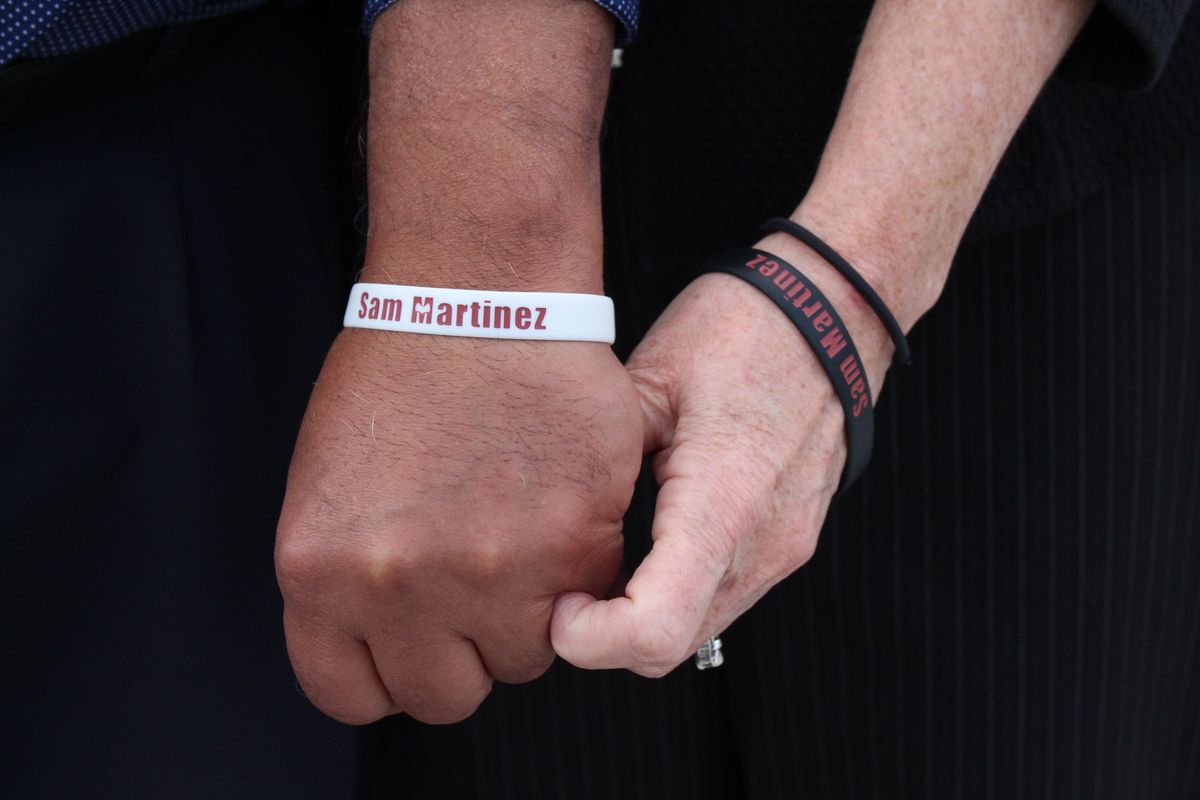‘I think it would have saved him’: Parents of 2019 WSU hazing victim help push anti-hazing bill to Biden’s desk
Sam Martinez, a Washington State University freshman who died from alcohol poisoning in 2019 at the Alpha Tau Omega fraternity, smiles in an undated photo. (Courtesy)
In 2007, it was Gary DeVercelly Jr. at Rider University in New Jersey. In 2014, it was Tucker Hipps at Clemson University. In 2017, Timothy Piazza died days after a hazing ritual at his Penn State fraternity.
Then in 2019, Washington State University freshman Sam Martinez, 19, died during a hazing event at his fraternity, Alpha Tau Omega. He died of alcohol poisoning after pressure from his fraternity brothers to drink excessively.
Sam’s parents, Jolayne Houtz and Hector Martinez, joined the ranks of families who lost their children to hazing, defined as degrading, forceful and dangerous initiation often associated with Greek systems at universities.
Solemn yet productive, this coalition of families has been rallying for legislation addressing hazing for over 10 years, each hoping hazing deaths stop with their children.
“I really can’t stand to see another young person lost to this, and so I keep going, and I know many other parents are doing the same,” Houtz said. “It’s not always easy to live inside of the cause of death of your child, and to be thinking about it all day long and wondering how you can bring more of it to light to help other families, but you feel a drive to keep other families from experiencing the hurt that we’ve been through.”
Sam’s family successfully lobbied for laws in Washington and joined forces with other parents to push for national change. On Wednesday, they marched one step closer to their decadelong goal: the U.S. Senate unanimously passed the Stop Campus Hazing Act already approved by the House of Representatives.
“There’s a lot of brave families behind this who have really taken their profound grief and channeled it into lifesaving legislation to help others,” Houtz said. “It won’t bring back our children, but it is comforting to know that we may prevent another hazing death for another family.”
Pending the president’s signature to become law, every college and university in the U.S. will be federally required to publicly disclose incidents of hazing at their institutions on their websites. Schools are to include hazing incidents in their annual security reports that detail other crime statistics on their campuses. The bill also requires institutions to create campuswide hazing education and prevention programs.
“My heart aches for Sam every day,” Houtz said. “He’s the first thing I think of in the morning and the last thing at night. I so wish that his life would have been spared and that this law would have been in place, because I think it would have saved him.”
A result of Sam’s family’s advocacy, the Washington Legislature passed a law that increased the penalty for hazing in 2023 and in 2022 another that requires hazing education at universities and for them to disclose investigations of hazing on their campus, similar to the federal version passed Wednesday.
The couple’s advocacy didn’t stop at state law – and won’t stop with a national one. Houtz and Martinez founded and operate the organization HazingInfo.org, which includes a database of hazing incidents around the nation, a “one-stop source” for parents and students. It’s shining a light on the secretive, often swept-under-the-rug culture of hazing so others have more information than Houtz did.
“Hazing is always something that has happened in darkness. I think about Sam’s experience, literally in a basement with the lights off and being forced to drink alcohol until he died,” Houtz said. “I think there’s no better way that I can think of to bring that behavior into the light than to share this incident data with families that can use it to make decisions for themselves and their children.”


